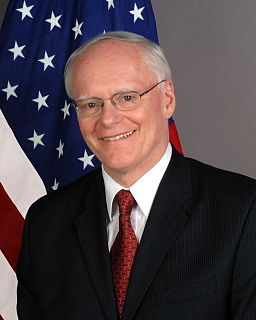A Quote by David Petraeus
This cannot be the United States being the air force for Shia militias, or a Shia on Sunni Arab fight.
Related Quotes
Right, because they're looking at also organizing the Sunni tribes up around Mosul to take back that city as well. That's the second largest city in Iraq. That's going to be a very, very tough fight. And the Shia militias were not used in Ramadi, and we're told by the Iraqi generals that they don't want any Shia militias up in Mosul, either, to take back that city. So - but again, that's going to be a very, very tough fight.
And on this issue of the Shia in Iraq, I think there's been a certain amount of, frankly, Terry, a kind of pop sociology in America that, you know, somehow the Shia can't get along with the Sunni and the Shia in Iraq just want to establish some kind of Islamic fundamentalist regime. There's almost no evidence of that at all. Iraq's always been very secular.
The Iranian people were converted to Islam not very much longer after the conquest of the Arab world by Islam, but they refused to adopt the Arabic language, and it's a great point of pride to them that Persian culture and the Persian language and Persian literature survived the conversion to Islam. And the conversion to Islam also was for most of them not the Sunni majority form, but the Shia one. So there's a great discrepancy between Iranian society and many other of what we think of as Arab Muslim States and systems.
The politicized version of Shia Islam that we see in the Islamic Republic post-1979 clearly is very conservative, but, there are other things one could say about Ayatollah Khomeini's concept of a Shia state because that in itself is a blasphemy as far as most Shia clerics are concerned. There's a theory that he developed in the early 1960s in the town of Najaf talking about - well not liberalism, necessarily, but flexibility though.



































